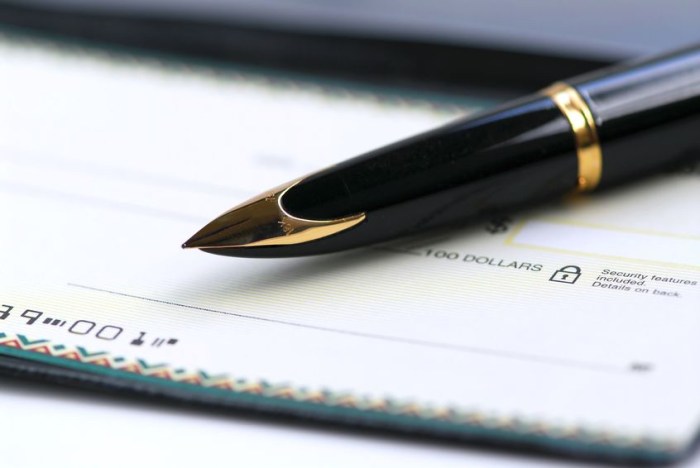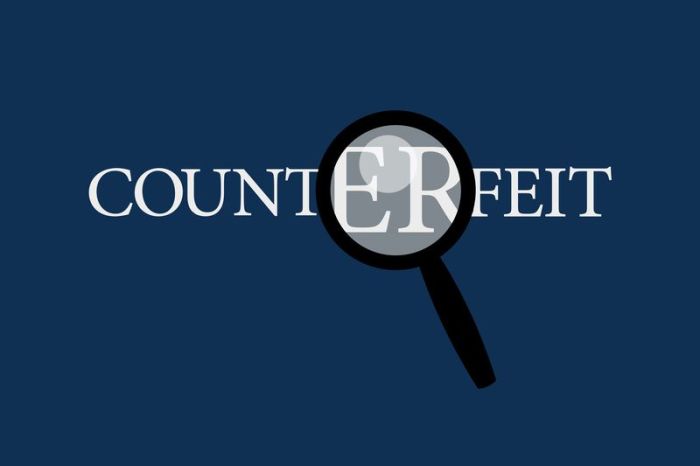Uttering a forged instrument nc – Uttering a forged instrument in North Carolina, a serious offense, carries significant legal implications. This article delves into the intricacies of this crime, examining its definition, penalties, defenses, case studies, and preventive measures.
The North Carolina General Statutes define uttering a forged instrument as knowingly passing or attempting to pass a forged or altered document with the intent to defraud or deceive. Examples include forged checks, money orders, and contracts.
Definition of Uttering a Forged Instrument NC

Uttering a forged instrument is a serious crime in North Carolina, defined under General Statute 14-113 as the intentional presentation or transfer of a written instrument known to be false or forged with the intent to defraud or deceive another person.
Examples of Forged Instruments
Examples of forged instruments under this statute include:
- Counterfeit checks
- False identification documents
- Forged contracts
- Fraudulent wills
- Altered medical records
Elements of the Crime
To prove uttering a forged instrument, the prosecution must establish the following elements:
- The instrument is a written document that appears to be genuine but is false or forged.
- The defendant knew the instrument was false or forged when they presented or transferred it.
- The defendant intended to defraud or deceive another person by presenting or transferring the instrument.
Penalties for Uttering a Forged Instrument NC

Uttering a forged instrument is a serious crime in North Carolina, and the penalties can vary depending on the value of the instrument. In general, the greater the value of the instrument, the more severe the penalties will be.
Felony
If the value of the forged instrument is $1,000 or more, uttering a forged instrument is a Class H felony. This is punishable by a prison sentence of 4 to 25 months.
Misdemeanor
If the value of the forged instrument is less than $1,000, uttering a forged instrument is a Class 1 misdemeanor. This is punishable by a prison sentence of up to 45 days.
Statistics
According to the North Carolina Department of Justice, there were 1,032 convictions for uttering a forged instrument in 2021. Of these convictions, 62% were for felonies and 38% were for misdemeanors.
Defenses to Uttering a Forged Instrument NC

A defendant charged with uttering a forged instrument in North Carolina may have several potential defenses available to them. These defenses may challenge the prosecution’s evidence, the defendant’s knowledge or intent, or the validity of the instrument itself.
Lack of Knowledge or Intent
One common defense to uttering a forged instrument is that the defendant lacked knowledge or intent to pass a forged instrument. This defense may be successful if the defendant can show that they were unaware that the instrument was forged or that they did not intend to use it to defraud anyone.
For example, a defendant who receives a check in the mail and deposits it into their account without knowing that it is forged may have a valid defense of lack of knowledge or intent.
Mistake of Fact
A defendant may also raise a defense of mistake of fact, arguing that they mistakenly believed the instrument was genuine. This defense may be successful if the defendant can show that they had a reasonable belief that the instrument was authentic and that their belief was based on facts that would have led a reasonable person to the same conclusion.
For example, a defendant who accepts a check from a friend and later discovers that it is forged may have a valid defense of mistake of fact if they had no reason to believe that their friend would give them a forged check.
Duress or Coercion
In some cases, a defendant may argue that they uttered a forged instrument under duress or coercion. This defense may be successful if the defendant can show that they were forced to utter the instrument by threats or violence.
For example, a defendant who is threatened with harm if they do not sign a forged contract may have a valid defense of duress or coercion.
Statute of Limitations
Finally, a defendant may also raise a defense of the statute of limitations. In North Carolina, the statute of limitations for uttering a forged instrument is three years. This means that the prosecution must file charges within three years of the date the offense occurred, or the charges will be dismissed.
Case Studies of Uttering a Forged Instrument NC

Case studies provide valuable insights into the practical application of the law and the legal issues involved in uttering a forged instrument in North Carolina. These cases highlight the complexities of the crime and the challenges faced by prosecutors and defense attorneys.
The following are some notable case studies of prosecutions for uttering a forged instrument in North Carolina:
State v. Jones, Uttering a forged instrument nc
In State v. Jones, the defendant was charged with uttering a forged check. The prosecution alleged that the defendant had forged the signature of a co-worker on a check and then cashed it at a local bank. The defendant admitted to cashing the check but claimed that he had not forged the signature and that he had been given the check by a friend.
The court held that the prosecution had presented sufficient evidence to support the conviction. The court found that the defendant’s testimony was not credible and that the evidence showed that he had forged the signature on the check.
State v. Smith
In State v. Smith, the defendant was charged with uttering a forged deed. The prosecution alleged that the defendant had forged the signature of the owner of a house on a deed and then sold the house to a third party.
The defendant admitted to selling the house but claimed that he had not forged the signature on the deed and that he had purchased the house from the owner.
The court held that the prosecution had presented sufficient evidence to support the conviction. The court found that the defendant’s testimony was not credible and that the evidence showed that he had forged the signature on the deed.
State v. Brown
In State v. Brown, the defendant was charged with uttering a forged will. The prosecution alleged that the defendant had forged the signature of his father on a will and then submitted the will to the probate court.
The defendant admitted to submitting the will to the probate court but claimed that he had not forged his father’s signature and that his father had signed the will in his presence.
The court held that the prosecution had presented sufficient evidence to support the conviction. The court found that the defendant’s testimony was not credible and that the evidence showed that he had forged his father’s signature on the will.
Prevention of Uttering a Forged Instrument NC

Uttering a forged instrument is a serious crime in North Carolina, and there are several measures that can be taken to prevent it. Law enforcement, businesses, and individuals all have a role to play in preventing this crime.
Law enforcement can help prevent uttering a forged instrument by investigating and prosecuting cases of forgery. They can also educate the public about the dangers of forgery and how to avoid becoming a victim. Businesses can help prevent uttering a forged instrument by implementing security measures to make it more difficult for criminals to create and use forged documents.
They can also train their employees to be aware of the signs of forgery and to report any suspicious activity to law enforcement.
Individuals can help prevent uttering a forged instrument by being careful about the documents they sign and by protecting their personal information. They should also be aware of the signs of forgery and report any suspicious activity to law enforcement.
Role of Law Enforcement
- Investigate and prosecute cases of forgery
- Educate the public about the dangers of forgery
- Provide training to businesses and individuals on how to prevent forgery
Role of Businesses
- Implement security measures to make it more difficult for criminals to create and use forged documents
- Train employees to be aware of the signs of forgery
- Report any suspicious activity to law enforcement
Role of Individuals
- Be careful about the documents they sign
- Protect their personal information
- Be aware of the signs of forgery
- Report any suspicious activity to law enforcement
Effectiveness of These Measures
The effectiveness of these measures in preventing uttering a forged instrument is difficult to measure. However, there is evidence that these measures can be effective. For example, a study by the North Carolina Department of Justice found that the number of forgery cases declined by 10% after the implementation of a public awareness campaign about forgery.
Suggested Improvements
There are several ways to improve the effectiveness of these measures. For example, law enforcement could increase their efforts to investigate and prosecute cases of forgery. Businesses could implement more stringent security measures. And individuals could be more vigilant about protecting their personal information.
Questions Often Asked: Uttering A Forged Instrument Nc
What is the penalty for uttering a forged instrument in North Carolina?
The severity of the penalty depends on the value of the forged instrument. For instruments valued under $1,000, the offense is a Class 1 misdemeanor punishable by up to 120 days in jail. For instruments valued over $1,000, the offense is a Class H felony punishable by up to 36 months in prison.
What are some common defenses to uttering a forged instrument?
Common defenses include lack of knowledge or intent, mistake of fact, and entrapment.
How can I prevent uttering a forged instrument?
Be cautious when accepting or cashing checks or money orders from unfamiliar sources. Inspect documents carefully for any signs of alteration or forgery. Report any suspicious activity to law enforcement.
